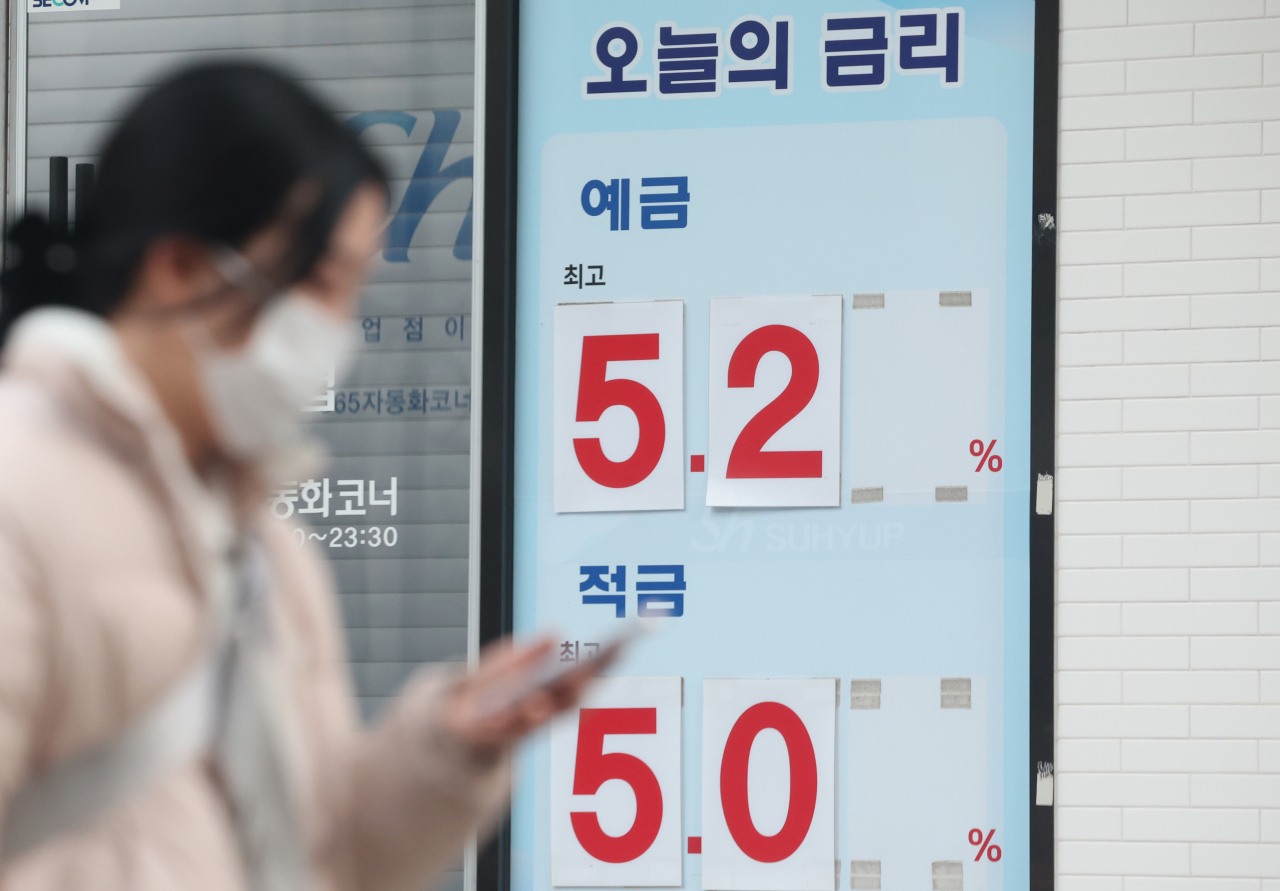Tax, interest repayments make up 27% of households’ spending
People suffered under higher interest rates on mortgages and credit loans last year
By Song Seung-hyun
Published : Feb. 27, 2023 - 14:47

South Korean households used a record high portion of their spending on non-consumption expenditures such as interest repayments and tax, according to data released on Monday by the Korean Statistical Information Service.
Household non-consumption expenditure includes money spent on tax payments, insurance payments, and interest payments on borrowed money, among other expenditures. As non-consumption expenditures increase, disposable income used for the personal consumption of goods and services decreases.
Non-consumption expenditures accounted for 26.5 percent of household expenditures in 2022, up 0.4 percentage points from 2021.
This is the highest annual figure since KOSIS began collecting related data that includes one-person households in 2006.
Non-consumption spending only accounted for 22.9 percent of expenditures in 2017. The figure then increased to 23.7 percent in 2018 and 26.2 percent in 2019.
In 2020, it dropped slightly to 25.9 percent but then rose again to 26.1 percent in 2021.
Last year's average monthly non-consumption expenditure for households reached 951,000 won ($720.73), seeing an increase of 8.0 percent on-year.
Among non-consumption expenditures, interest expenses saw the largest increase of 15.3 percent to an average of 99,000 won. This indicates that people suffered under higher interest rates on mortgages and credit loans last year.
Tax expenses, including income tax, property tax and vehicle tax, increased by 10.6 on-year percent to an average of 212,000 won.
Social insurance payments rose by 8.0 percent, and pension contributions increased by 5.2 percent.
Urban workers bore a higher burden of non-consumption expenditure, with their proportion of non-consumption expenditure to total household expenditure reaching 29.1 percent.
However, expenditures for so-called "non-economic taxes," which include taxes on real estate acquisition, real estate registration and asset transfer income tax, decreased by 31.9 percent due to sluggish asset transactions.
Also, the survey showed that a significant number of households still earn below the minimum wage level or only slightly above it last year.
One out of five households had a monthly income that falls short of 2 million won. Households that earn less than 1 million won accounted for 8.5 percent, while 11.27 percent earned between 1 and 2 million won.
Last year's minimum wage level was set at 9,160 won per hour, and the minimum monthly salary was set at 19.1 million won, based on 209 monthly working hours.
Data from the survey highlighted the heavy financial burdens that Koreans have been facing.
Earlier this month, KOSIS also released survey results which emphasized the growing burden for Koreans paying energy bills, which increased greatly on-year with the January inflation index hitting the highest level since the 1998 financial crisis.
The public utility price index logged 135.75 points in January, up 31.7 percent from the same month last year.
This hike is the byproduct of the increase in international prices for liquefied natural gas that began in March 2021 and have been further aggravated by Russia’s invasion of Ukraine in February 2022. In these difficult global circumstances, the state-run Korea Electric Power Corp. and Korea Gas Corp. were left with no choice but to raise rates last year.







![[Weekender] How DDP emerged as an icon of Seoul](http://res.heraldm.com/phpwas/restmb_idxmake.php?idx=644&simg=/content/image/2024/04/25/20240425050915_0.jpg&u=)



![[KH Explains] No more 'Michael' at Kakao Games](http://res.heraldm.com/phpwas/restmb_idxmake.php?idx=644&simg=/content/image/2024/04/28/20240428050183_0.jpg&u=20240428180321)







![[Herald Interview] Mistakes turn into blessings in street performance, director says](http://res.heraldm.com/phpwas/restmb_idxmake.php?idx=652&simg=/content/image/2024/04/28/20240428050150_0.jpg&u=20240428174656)
